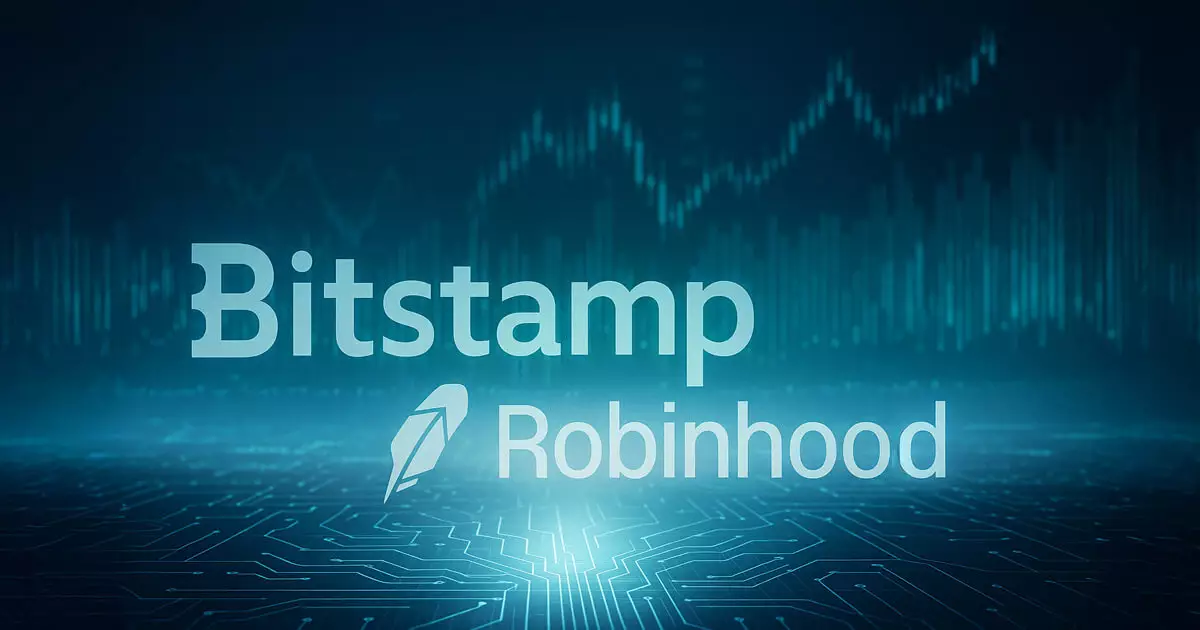In an audacious bid to solidify its foothold in the intricate world of cryptocurrency, Robinhood has completed a $200 million acquisition of Bitstamp, a historic player within the realm of crypto exchanges. This transformative event, which comes after a lengthy 12-month negotiation, represents far more than a mere financial transaction; it is a monumental step for Robinhood as it attempts to reshape its identity from a domestic trading platform to a global financial powerhouse. The significance of this acquisition is immense, offering Robinhood not only 50-plus licenses but also a pathway to four million new customers and access to institutional revenue streams that were previously out of reach.
The strategic reasoning behind this all-cash deal cannot be overstated. By incorporating Bitstamp into its business model, Robinhood instantly gains regulatory approvals that would have otherwise taken years to obtain through conventional methods. In a sector known for its unrelenting pressure and volatility, this leap forward sets Robinhood apart from its competitors, establishing a robust foundation to expand internationally.
Instant Licenses: Revolutionizing Market Access
The integration of over 50 licenses across Europe, Asia, and the U.S. is a pivotal element of this acquisition. This structural advantage allows Robinhood to bypass the bureaucratic quagmire that often inhibits startups and traditional companies alike. In light of Europe’s Markets-in-Crypto-Assets (MiCA) framework, these licenses act as an invaluable resource, allowing Robinhood to offer services across 27 EU member states at a moment’s notice. It is an extraordinary leap forward that showcases the advantages of acquisition over slow organic growth.
Moreover, Robinhood’s newfound access to various regulatory approvals represents not just an end in itself, but a means to a critical end—they can deliver sophisticated products and services to a much broader customer base than ever before. With these regulatory hurdles removed, Robinhood can potentially redefine its product lineup, bringing an extensive list of over 85 coins, staking services, and lending products to a global audience.
A Bold Move into Institutional Revenue
For too long, Robinhood has relied heavily on retail trading, often at the whims of everyday investors. However, with Bitstamp under its wing, the California-based fintech is now poised to tap into the institutional trading space, a market characterized by ‘stickier’ revenue streams. Approximately one-fourth of Bitstamp’s trading volume comes from high-frequency market participants and family offices—clients who demand higher levels of service and can yield much more significant profits than typical retail clients. By entering this arena, Robinhood will not only diversify its revenue streams but also fortify its financial stability in an industry punctuated by rapid change and uncertainty.
The potential for growth in this area is striking. As fee pressures intensify in the retail space, the opportunity to access a new segment of institutional customers could become crucial for Robinhood’s long-term viability. This evolution from a predominantly retail-oriented platform to a more balanced approach could also help bolster investor confidence, especially in a market reeling from regulatory scrutiny and intense competition.
Embracing Competition: A Regulatory Landscape in Flux
Robinhood’s bold move comes at a critical time when major exchanges like Coinbase and Kraken are grappling with their strategic paths in Europe. Each of these platforms has taken unique approaches—whether it’s acquiring licenses, setting up operations, or facing regulatory challenges head-on. In stark contrast to Robinhood’s aggressive acquisition strategy, competitors have often opted for a more measured pace, leaving a strategic gap that Robinhood seems keen to exploit.
Additional regulatory scrutiny faced by other major players in the space, such as Binance—which has found itself embroiled in various legal challenges—presents Robinhood with a unique opportunity. With Bitstamp’s licenses in hand, Robinhood has positioned itself as a formidable contender in a landscape that has often been chaotic and fraught with uncertainty.
Thus far, the execution of this acquisition appears to be a defining moment, one that signifies not just an expansion of Robinhood’s offerings but a genuine shift in how it operates within the crypto marketplace. In a world where adaptability is often the key to survival, Robinhood is taking decisive steps to future-proof its business against a backdrop of regulatory change and intense competition.
















Leave a Reply